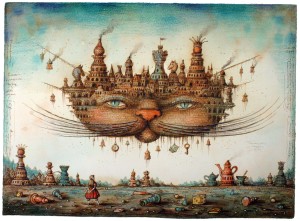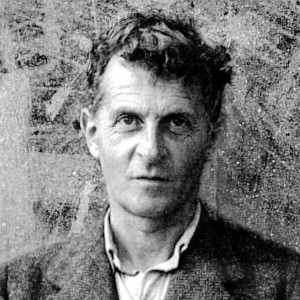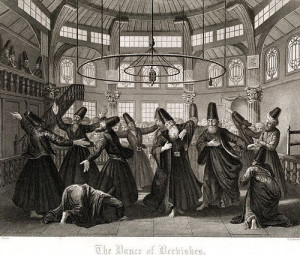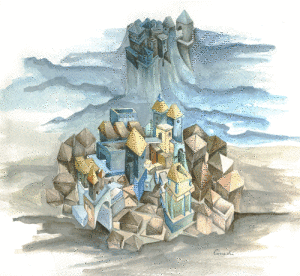 Have you ever felt unaccountably drawn to a city, country, or continent you’ve never visited before? Have you ever journeyed to a foreign, unfamiliar place and yet felt perfectly at home? I’m just back from a mini-book tour of Georgia and wondering about these questions. This is one of the very great things about being a published and public author: not only do I get to meet readers and future readers, something I love to do, but I’m traveling to parts of this country I might not have gotten to visit otherwise—New Paltz and Woodstock, New York (Yes, THAT Woodstock!); Nashville, Tennessee; Athens, Georgia to name a few.
Have you ever felt unaccountably drawn to a city, country, or continent you’ve never visited before? Have you ever journeyed to a foreign, unfamiliar place and yet felt perfectly at home? I’m just back from a mini-book tour of Georgia and wondering about these questions. This is one of the very great things about being a published and public author: not only do I get to meet readers and future readers, something I love to do, but I’m traveling to parts of this country I might not have gotten to visit otherwise—New Paltz and Woodstock, New York (Yes, THAT Woodstock!); Nashville, Tennessee; Athens, Georgia to name a few.
Georgia charmed me. What a flirt! Even with her dirty face and smeared lipstick, she was all soul. My plane touched down in the dusky Atlanta twilight, and after an endless, color-deprived Wisconsin winter, the first thing I noticed was the glorious lushness of the landscape. Every shrub and sapling seemed to be flowering, and the scents intoxicated. Ancient willows and huge old oaks sashaying in the wind were the trees in the childhood fairy tales books I wished to inhabit. I might be romanticizing here, but it was hard not to fall in love with Georgia.
Georgia seduces you with her melancholic, regal and faded glory.  We know she lost the Civil War to us damn Yankees; we know internally she still carries herself like a queen and we can’t forget that once she ruled like a queen, but now Georgia is everywhere diverse, a stew of the peoples, and diversity—of ethnicities, genders, ages, and incomes—certainly gives a place soul. Maybe losing a war and burying a way of life along with the dead makes for a kind of graciousness and humility wrought out of sorrow we Midwesterners can’t quite know.
We know she lost the Civil War to us damn Yankees; we know internally she still carries herself like a queen and we can’t forget that once she ruled like a queen, but now Georgia is everywhere diverse, a stew of the peoples, and diversity—of ethnicities, genders, ages, and incomes—certainly gives a place soul. Maybe losing a war and burying a way of life along with the dead makes for a kind of graciousness and humility wrought out of sorrow we Midwesterners can’t quite know.
This is all speculation on my part, of course, but when I think of Georgia now I see the South of Alice Walker and Carson McCullers, the grand and not-so-grand houses with their commodious porches where the elders rocked and waved howdy to their neighbors. Those porches still exist as do the friendly and welcoming howdy-dos.
Friendliness was in the atmosphere from the moment we checked in near midnight at the Athens Marriott Courtyard. The jovial desk clerk was not only unfazed by our late arrival, she proudly gave us details to AthFest, Athens’ yearly music festival and street fair occurring that weekend. With a hug, she sent us to bed.
 I’m a hugger (including a tree-hugger!) and a hand-holder and have been known to give near strangers an affectionate kiss, so I fit right in with the local custom of appreciative smooches and cheek-pecks. Hmmm—how to say this? Are Southerners more erotically (as in Eros) connected than the rest of us?
I’m a hugger (including a tree-hugger!) and a hand-holder and have been known to give near strangers an affectionate kiss, so I fit right in with the local custom of appreciative smooches and cheek-pecks. Hmmm—how to say this? Are Southerners more erotically (as in Eros) connected than the rest of us?
I’m also happy to report friendliness took the form of genuine enthusiasm for The Conditions of Love, a novel set in the Wisconsin that has nothing Southern about it. Janet Geddis, (owner), and Rachel Watkins, (events coordinator and local politco), and staff at Athens popular Indie bookstore Avid Bookshop (with help from new writer friend Sara Baker, and Janna Dresden and Ron Cervero), did a fabulous job of pulling in an enthusiastic group who might have otherwise skipped off to hear a band at AthFest. Those of you who know me know how much I love to talk about books, writing, and the creative process with audiences, and the folks who showed up at Avid’s were both wonderfully attentive and great question-askers. One question that I’m often asked, and was asked in Athens, is what motivated me to write fiction after studying to write poetry. The answer is definitely a blog-post in the making!
 In Atlanta, I stayed at the historic Inman Park B & B and was hosted by the ever-hilarious Eleanor and her heartthrob, Bob the Duck. (No kidding!) Inman Park is the place to go if you’re interested in historic mansions. Right around the corner from my B & B was Windcrofte, the spectacular mansion once owned by the Woodruff family of Coca-Cola fame.
In Atlanta, I stayed at the historic Inman Park B & B and was hosted by the ever-hilarious Eleanor and her heartthrob, Bob the Duck. (No kidding!) Inman Park is the place to go if you’re interested in historic mansions. Right around the corner from my B & B was Windcrofte, the spectacular mansion once owned by the Woodruff family of Coca-Cola fame.
My friend from VCFA graduate school days, Liza Nelson, brought out the crowd at A Cappella Books. I’d promised event coordinator, Courtney Conroy, I’d bring genuine Wisconsin cheese curds (the brilliant idea of my local PR maestro, Danielle Dresden) to lure an audience. Who would have guessed that the humble and unsophisticated cheese curd is exotica to Southerners?  Charis Books in Atlanta, one of the oldest feminist bookstores in the country, where I signed a few copies of The Conditions of Love, also rolled out the welcome mat in style.
Charis Books in Atlanta, one of the oldest feminist bookstores in the country, where I signed a few copies of The Conditions of Love, also rolled out the welcome mat in style.
Merci and gracias to all including Marti, owner and chef of Marti’s at Midday in Athens, closed for lunch the day we arrived at her door. Nonetheless, the ebullient Marti ushered us in, showed us around, then after a firm embrace sent us to chow down at another local wonder, The Grit.
I conclude that I must return to Georgia to further explore its memorable juju of hospitality, warmth, and soulfulness. Does a place reflect our inner world? Can we find out more about ourselves by investigating certain places? I think so. A great deal of our identity is tied to place, but we are so much more than our hometown selves. In the past, I haven’t been a reader of travel memoirs. Now I may become one. Book suggestions?
 What do a formerly enslaved woman running for her freedom, a hidden child during the Holocaust, and Mary Magdalene have in common?
What do a formerly enslaved woman running for her freedom, a hidden child during the Holocaust, and Mary Magdalene have in common?













